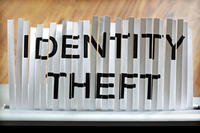ATLANTA -- Another new year is on the horizon, and many of us are already thinking about the positive changes we want to make in 2011. Some are planning to eat healthier and improve their physical fitness; others will vow to spend more time with family and friends. Topping the list of resolutions for many consumers will be paying off credit cards and getting out of debt.
"Many consumers use credit cards without considering the long-term impact it can have on their finances," said Mechel Glass, director of education for CredAbility, a national nonprofit credit counseling and education organization. "Interest and finance charges add up fast, and for consumers making only minimum payments or who have even a single late payment, rising balances can quickly outpace their ability to pay."
According to the U.S. Census Bureau, the average cardholder had $5,100 in credit card debt in 2009 and that figure is closer to $6,500 in 2010. If you have an interest rate of 18 percent and make just the minimum payment toward this debt each month, it will take you 25 years to pay it off. In addition to the $6,500 principal, you will pay an additional $9,173 in interest. Your $6,500 in purchases will cost you $15,673. And that assumes that you don't use the card to make any additional purchases. (This example includes a payment equal to interest plus 1 percent of the balance.)
Just like every other resolution on your list, eliminating credit card debt requires focus and commitment. CredAbility offers the following tips to help consumers:
Stop using credit cards. It may seem simple, but if you are used to buying everything on credit, it is a tough habit to break. Cutting up your credit cards is one way to ensure you won't use them. Another would be to secure your cards in a safe deposit box at your bank or other hard-to-reach location to make impulse purchases much harder. Before you make any purchase, ask yourself "Do I really need this? Can I pay for it with cash?" If you answer no to either question, skip the purchase. Ideally, only use credit as you would cash, when you know you can pay the bill off on-time and in-full.
Resist the temptation of credit card offers. Open your mailbox on any given day and there is likely to be another offer for another credit card. Shred these offers without opening them and you will be less likely to be tempted by teaser interest rates or offers to consolidate your credit card bills. You can further reduce these offers by requesting that your name and credit information not be provided to financial institutions. You can do this by calling 1-888-5-OPTOUT (1-888-567-8688) or online at http://www.optoutprescreen.com/.
Create a repayment plan. Look at all of your credit card debt and make a plan for how you will pay off the balances. While you need to make at least the minimum payment on all of your cards, prioritize the order in which you will pay the cards off. You might choose the card with the highest interest rate as the one to pay off first. Perhaps you have a small balance on a couple of cards. Paying those off first may provide you with a sense of accomplishment and help keep you on track. Document your plan to help you stay focused and, as each balance is paid, redirect the money you were spending on that card to reduce the balance on another.
Pay more than the minimum. When you make a purchase with a credit card and make only minimum payments, repaying the debt can take years, and even decades. It is not uncommon for consumers to pay three times the original purchase price when interest and other charges are factored in. On a $6,500 debt, if you pay $163 a month, it will take you 5 years and 2 months to pay off the balance and you will pay $3,481 in interest. Increase your payment to $200 per month and you will pay it off in just 3 years, 9 months and pay $2,479 in interest. Use bonuses from work or other unexpected gifts of money to reduce your credit card balances. Your credit card statement is now required to include how long it will take you to pay off your balance making the minimum payment.
Can't give up credit cards altogether? If you can't give up using credit, be sure to use it wisely. Limit yourself to two or three cards and choose those with the best terms, including low rates, no annual fee and reasonable interest terms, such as a 25-day grace period before you begin paying interest on a purchase. Be sure to read and understand the terms of your credit card agreement -- be aware of hidden fees that might impact you.
Don't hesitate to seek help. Remember, you don't have to solve your financial problems alone. CredAbility has trained and certified credit counselors who offer budget and credit counseling confidentially -- and free. CredAbility is a nonprofit, community-based organization and a member of the National Foundation for Credit Counseling (NFCC). For more information, call 1-800-251-2227 or visit us online at http://www.credability.org/










